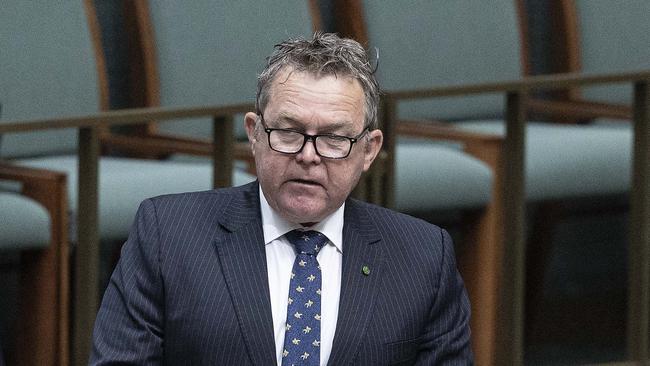Call for more time to consider threat to key water supply
Farmers and MPs are calling for the Palaszczuk government to extend the deadline for public submissions about a proposal to store carbon dioxide waste in the Great Artesian Basin.

Farmers and state and federal MPs are calling for the Palaszczuk government to extend the deadline for public submissions about a mining giant’s proposal to store carbon dioxide waste in the Great Artesian Basin.
They say any likelihood that Glencore’s carbon capture and storage trial site near Moonie, 375km west of Brisbane, could damage the water supply must be carefully considered and open to public scrutiny.
Queensland’s environmental regulator on December 5 gave a deadline of February 23 (Thursday) for public submissions on the Glencore-owned CTSCo’s environmental impact statement.
State farming organisation AgForce has called for an extension on behalf of farmers whose own underground water supplies are as close as 10km to the proposed storage point and are concerned about the effect on their aquifers and on the basin, which covers 22 per cent of the continent and is the only permanent freshwater source for many inland communities.
Carbon capture use and storage technology extracts CO2 before it enters the atmosphere and compresses it into a liquid.
The Coalition has previously championed the Glencore project, but Nationals member for Flynn Colin Boyce said most Australians were unaware of the proposal which carried a risk to the nation’s key water resource.
“One of the problems with these EIS consultation periods is … nobody really knows about them until the last minute,” Mr Boyce told The Australian.
“On Earth’s driest habitable continent, why are we even considering compromising a potable water source?”
Mr Boyce raised the issue in parliament two weeks ago and revealed a Glencore proposal for the Queensland government to amend the Queensland Environmental Protection Regulation to remove a performance outcome that stipulated a project could have “no direct or indirect release of contaminants to groundwater”.
Mr Boyce said the issue was a result of government and investor pressure on businesses to offset their carbon emissions.
Former Nationals senator Ron Boswell backed calls for an extension of the EIS submission deadline. “When the enormity of this hits the bush, it will go like wildfire out there,” he said.
State LNP MP Ann Leahy said it was important to ensure the evaluation process was “not rushed” and “given sunshine” while the scientific merits and community impacts of the proposal were examined.
CTSCo general manager Darren Greer said Glencore was “not opposed to extending (the EIS submission deadline) by a couple of weeks to enable additional stakeholders to comment”.
Mr Greer said the aquifer targeted by CTSCo was 2.3km deep and contained water “unsuitable for human or livestock consumption, or crop irrigation”.
“We take water management very seriously and the proposed CTSCo injection test will not impact the shallower potable water sources used by communities and agriculture across the region,” Mr Greer said.
The proposal also includes multiple physical barriers to protect shallower aquifers, and monitoring to ensure stored CO2 remains in place.
Environment Minister Meaghan Scanlon said the environmental regulator had already set an extended time frame for submissions from the usual 30 business days.
She said the government had not developed any proposed amendments to the Environmental Protection Regulation like those proposed by Glencore.
“The current regulation strikes a balance which protects surface ecological systems and prevents contaminants from entering unconfined aquifers,” Ms Scanlon said.
“I am not aware of any rationale which would justify a change to this regulation at present.”




To join the conversation, please log in. Don't have an account? Register
Join the conversation, you are commenting as Logout